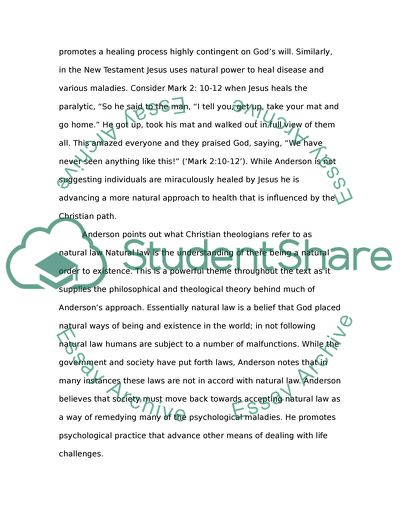Cite this document
(“Neil Anderson's Discipleship Counseling Essay Example | Topics and Well Written Essays - 1500 words”, n.d.)
Retrieved from https://studentshare.org/religion-and-theology/1429999-neil-anderson-s-discipleship-counseling
Retrieved from https://studentshare.org/religion-and-theology/1429999-neil-anderson-s-discipleship-counseling
(Neil Anderson'S Discipleship Counseling Essay Example | Topics and Well Written Essays - 1500 Words)
https://studentshare.org/religion-and-theology/1429999-neil-anderson-s-discipleship-counseling.
https://studentshare.org/religion-and-theology/1429999-neil-anderson-s-discipleship-counseling.
“Neil Anderson'S Discipleship Counseling Essay Example | Topics and Well Written Essays - 1500 Words”, n.d. https://studentshare.org/religion-and-theology/1429999-neil-anderson-s-discipleship-counseling.


